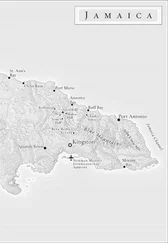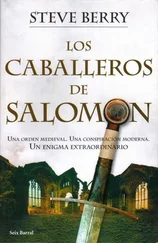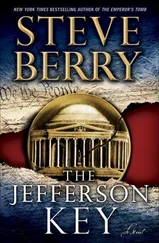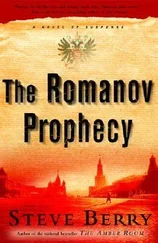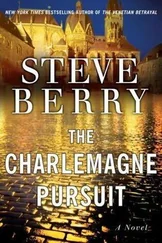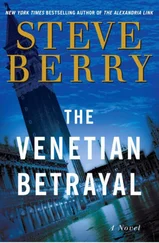• • •
Ashby had known of some of the items Saint-Denis left the city of Sens. The two volumes of Fleury de Chaboulon. The atlases. The folio volume of the campaigns of Italy. But a copy of The Merovingian Kingdoms 450-751 A.D.?
That was new.
Perhaps the answer he sought lay with it?
DENMARK
THORVALDSEN HAD COME TO CAI’S ROOM FOR STRENGTH. THE time for resolution had arrived. He’d plotted this path carefully, planned every detail, anticipated the possible moves. He believed himself ready. All that remained was to enlist Cotton Malone’s help. He’d almost called his friend Cassiopeia Vitt, but decided against it. She’d try to stop him, tell him there was another way, while Malone would understand, particularly given what had happened over the past couple of weeks.
“Napoleon died peacefully on May 5, 1821, just after six o’clock in the evening,” he explained to Malone. “One observer noted, he went out as the light of a lamp goes out . He was buried on St. Helena, but exhumed in 1840 and returned to Paris, where he now lays in the Hôtel des Invalides. Some say he was murdered, slowly poisoned. Others say natural causes. Nobody knows. Nor does it matter.”
He caught sight of a knotted tail stretched across one of the shelves. He and Cai had flown the kite one summer afternoon, long ago. A flash of joy passed through him-a rare feeling, both wondrous and uncomfortable.
He forced his mind to concentrate and said, “Napoleon stole so much that it’s beyond comprehension. On his way to Egypt, he conquered Malta and acquired coin, art, silver plate, jewels, and five million francs’ worth of gold from the Knights of Malta. History says it was lost at sea, during the Battle of Abukir Bay. Isn’t it interesting how we title battles, as if they were some great dramatic epic? When the British destroyed the French fleet in August 1798, seventeen hundred sailors died. Yet we give it a title, like some novel.”
He paused.
“The Malta treasure was supposedly on one of the ships that went down, but no one knows if that is actually the case. There are many more stories like that. Homes, castles, entire national treasuries looted. Even the Vatican. Napoleon remains the only person to have successfully plundered the church’s wealth. Some of that booty made it back to France in an official capacity, some didn’t. There was never any adequate inventory. To this day, the Vatican maintains there are items unaccounted for.”
As he spoke, he fought with the ghosts this sacred room hosted, their presence like a chain of missed opportunities. He’d so much wanted for Cai to inherit his Thorvaldsen birthright, but his son had wanted first to commit himself to public service. He’d indulged the desire since he, too, when young, had satisfied his curiosity with a trip around the world. The planet had seemed so different then. People didn’t get shot while simply enjoying their lunch.
“When Napoleon died, he left a detailed will. It’s long, with numerous monetary bequests. Something like three million francs. Most were never honored, as there were no funds from which to pay them. Napoleon was a man in exile. He’d been dethroned. He had little, besides what he’d brought to St. Helena. But to read his will, you would think him wealthy. Remember, it was never intended that he would leave St. Helena alive.”
“I never understood why the Brits didn’t just kill him,” Malone said. “He was an obvious danger. Hell, he escaped from his first exile, in Elba, and wreaked havoc in Europe.”
“That’s true, and when he finally surrendered himself to the British, that surprised a lot of people. He wanted to go to America, and they almost let him, then decided better. You’re right-he was a real danger. And nobody wanted any more wars. But killing him would have posed other problems. Martyrdom, for one. Napoleon was revered, even in defeat, by many French and British. Of course, there is also another explanation.”
He caught sight of his face in the mirror above the dresser, his eyes, for once, alight with energy.
“It was said he harbored a secret, one the British wanted to learn. Untold wealth, all that unaccounted-for loot, and the English wanted it. The Napoleonic Wars had been costly. That’s why they kept him alive.”
“To bargain with him?”
He shrugged. “More likely waiting for Napoleon to make a mistake and they’d learn the treasure’s location.”
“I’ve read about his time on St. Helena,” Malone said. “It was a constant struggle of wills between him and Hudson Lowe, the British commander. Down to even how he should be addressed. Lowe referred to him as Général . Everyone else called him Your Majesty . Even after he died, Lowe wouldn’t allow the French to place Napoleon on the tombstone. He wanted the politically neutral Napoleon Bonaparte . So they buried him in an unmarked grave.”
“Napoleon was clearly a polarizing figure,” Thorvaldsen said. “But his will is most instructive, written three weeks before he died. There’s a provision, to his valet, Saint-Denis, where he left a hundred thousand francs and then directed him to take his copy of The Merovingian Kingdoms 450-751 A.D . and another four hundred of his favorite volumes from his personal library, and to care for the books until Napoleon’s son reached sixteen. He was then to deliver the books to the son. Napoleon’s son lived to age twenty-one, but died a virtual prisoner in Austria. He never saw those books.”
Anger crept into his voice. For all his faults, every account ever written acknowledged how much Napoleon loved his son. He’d divorced his beloved Josephine and married Marie Louise of Austria simply because he needed a legitimate male heir, one that Josephine could not supply. The boy was but four when Napoleon had been exiled to St. Helena.
“It is said that within those books was the key to finding Napoleon’s cache-what the emperor skimmed for himself. He supposedly secreted that wealth away, in a place only he knew. The amount was enormous.”
He paused again.
“Napoleon possessed a plan, Cotton. Something he was counting on. You’re right, he played a game of wills with Lowe on St. Helena, but nothing was ever resolved. Saint-Denis was his most loyal servant, and I’m betting Napoleon trusted him with the most important bequest of all.”
“What does this have to do with Graham Ashby?”
“He’s after that lost cache.”
“How do you know that?”
“Suffice it to say that I do. In fact, Ashby desperately needs it. Or, more accurately, this Paris Club needs it. Its founder is a woman named Eliza Larocque, and she holds information that may lead to its discovery.”
He glanced away from the dresser, toward the bed where Cai had slept all his life.
“Is all this necessary?” Malone asked. “Can’t you let it go?”
“Was finding your father necessary?”
“I didn’t do it to kill anyone.”
“But you had to find him.”
“It’s been a long time, Henrik. Things have to end.” The words carried a somber tone.
“Since the day I buried Cai, I swore that I would discover the truth about what happened that day.”
“I’m going to Mexico,” Cai said to him. “I’m to be chief deputy of our consulate there.”
He saw the excitement in the young man’s eyes, but had to ask, “And when does all this end? I need you to take over the family concerns.”
“As if you’d actually let me decide anything.”
He admired his son, whose wide shoulders stretched straight as a soldier’s, his body lithe as an athlete’s. The eyes were identical to his from long ago, brittle blue, boyish at first glance, disconcertingly mature on further acquaintance. In so many ways he was like Lisette. Many times he felt as if he were actually talking to her again .
Читать дальше


